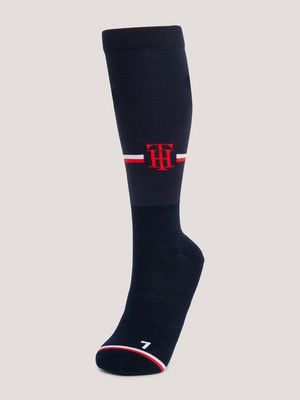Stomach - Protek Assist 1.6kg
Loyalty
Buy and earn €6.12 Loyalty for your next purchaseTO PROTECT YOUR HORSE'S STOMACH
The way of life of our horses has changed significantly since they were first domesticated...
There are very few horses that are allowed to spend twenty-four hours a day, seven days a week on lush pastures. Their food often does not meet their needs and is usually rationed. This has negative consequences for all these horses kept in an "unnatural" way
Horses often suffer from gastric ulcers, and that applies to both recreational and sport horses. Approximately 90% of all sport horses and 10% of recreational horses are diagnosed with gastric ulcers.
Gastric ulcer syndrome in horses is also known as EGUS ("Equine Gastric Ulcer Syndrome") and is a complex, multifactorial syndrome. There is a strong relationship between intense training, periods of stress, longer periods of fasting, a starchy diet and the risk of gastric ulcers in horses.
A horse's stomach is divided into two, the non-glandular or "squamous" part, and the glandular part. Gastric ulcers can occur in both areas and can be more or less severe (grades 1 to 4).
The clinical signs of gastric ulcers are relatively non-specific and range from reduced performance, loss of muscle mass, stunted growth and loss of appetite to major weight loss, anorexia or more or less severe attacks of colic (scraping of the legs, lying down and rolling). Unfortunately, these symptoms are not specific to gastric ulcers and the clinical suspicion must be confirmed by a veterinary examination. This examination can also determine what type of stomach ulcers are involved and how severe they are.
The usual treatment aimed at reducing stomach acid is long, costly and requires a reassessment of the lesions. For the well-being of these horses, it is important that gastric acid production is inhibited in order to protect the mucous membranes and promote the healing process.
Because the well-being of the horse is a priority at Kevin Bacon's, we have developed two healthy and natural nutritional supplements that are very easily absorbed into the body: Stomach-Protek "Speed Action", which comes in the form of an extremely tasty paste for horses with acute gastric ulcers, and Stomach-Protek "Assist", which comes in the form of a powder mixed into the feed for daily use.
Stomach-Protek "Speed Action" and Stomach-Protek "Assist" can be used:
- for horses with sensitive stomachs,
- in case of digestive disorders,
- during stressful periods (competitions, transport, change of daily routine),
- in case of inexplicable loss of shape,
- if your horse starts to show signs of discomfort during girthing,
- if your veterinarian thinks your horse's stomach is upset,
- enzovoorts.
Consult your veterinarian if you are unsure about using these products.
Stomach-Protek is not a medicine and should not be used as a substitute for necessary medical treatment in case of health problems in the horse.
This product has no performance-enhancing effect and may be used during official competitions.
Stomach-Protek «Assist'» is administered orally by mixing it into the horse's feed. Minimum treatment duration: 7 days.
Because this product evaporates very quickly, the packaging must remain hermetically sealed.
Store at a temperature of 5 to 30°C






